Senior Year Summer
I usually give a talk around graduation time with tips for high-school seniors heading to college. Given the current situation, I decided to focus on something different this year.
I've included it as an issue of Sunday Scaries, a weekly newsletter that explores simple questions with surprising answers. Sunday Scaries doesn't have paid subscriptions yet, so the best way to help support this publication is to spread the word. You can do this by forwarding this email to a friend or sharing it on social media.
College tuition buys three things: an education, a credential, and a network. If these products seem interchangeable, it's because they're sold together as one experience called "college." Although this grouping seems normal now, it wasn't always the case.
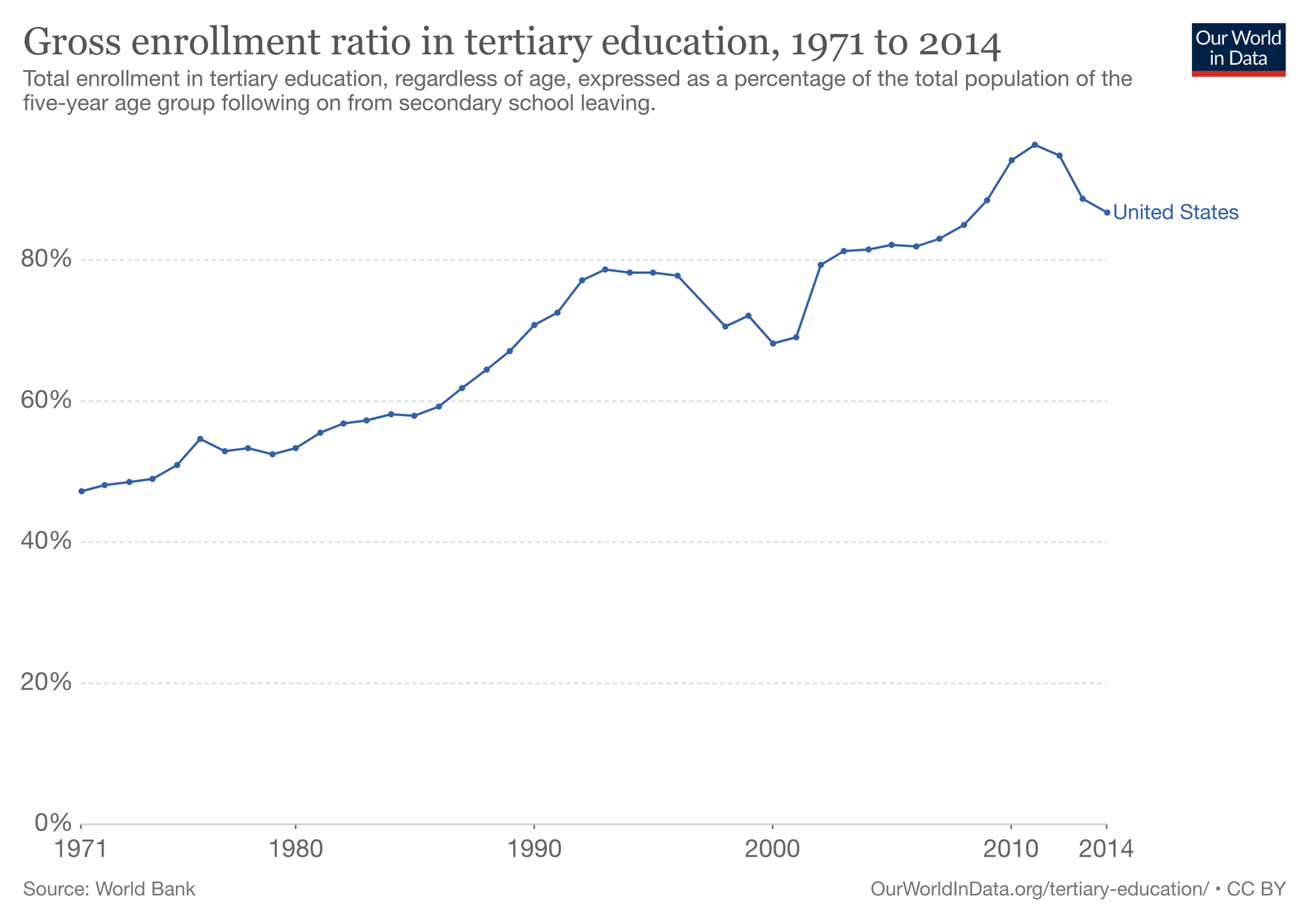
Choosing to go to college after high school has become the default decision for most graduating seniors. If you're considering heading off to university in the fall, you should understand that this decision will influence your education, job prospects, and friend groups.
What colleges don't tell students is that succeeding in one of these categories often means sacrificing success in another. Most undergraduates tend to realize this contradiction about halfway through their sophomore year. It manifests as an uneasy feeling and a trip to the career advisor.
This feeling happens because students make the mistake of expecting the work they do in one area to pay off in another. I happen to know because I made this exact mistake and only realized what had happened years later. In retrospect, it's easy to see how I missed it. Colleges intentionally keep the distinction between categories vague to justify tuition. If colleges admitted they were selling three separate products, it would be an explicit invitation for competitors to carve off a piece of their business.
I wish someone had explained this to me before college. Instead, it felt like I was being pulled in different directions. For something regarded as a cohesive experience, college is more like a set of competing games with different rules. Playing one game means losing ground in another. If you're determined to "succeed" at college, this can be a frustrating experience.
Because colleges are such a large part of American culture, unwinding these priorities would usually take decades. COVID has changed that. For the first time, high school students have a chance to break the script without stigma. Even the most die-hard supporters of college would find it uncomfortable to tell an incoming freshman today that everything will be the same.
It's no surprise that many high school students are reevaluating their decision to attend college in the fall. Starting freshmen year from your childhood bedroom is a poor substitute for the experience promised to you throughout highschool. But with no suitable alternative, it seems like a lose-lose. If the only options are "do nothing" or "watered down college," then the latter sounds better, if only mildly.
Fortunately, there are other options. They're less known but worth considering for someone uncertain about the prospects of attending college remotely. Especially since the whole world is in disarray, no one will think twice about someone who chose to take an unconventional path for a year while things calmed down.
The advice I'm about to give applies to anyone considering college, whether as an incoming freshman or returning for graduate school. The difference between my experience and the world today is that the distinction between categories is much more apparent. This distinction won't last forever, because eventually, colleges will be able to reopen. But for a short period, students will have the opportunity to make a decision based on what they want, instead of what is expected.
So, what are the differences between education, credentials, and networks? And what is the best way to succeed in each?
Education
Education is how we gain skills and knowledge. Worthwhile educations are surprisingly hard to find, since most curriculum is loaded with fluff to make admissions brochures look good. The really valuable educations tend to look more like apprenticeships than lectures. A few months of dedicated time with a good teacher is worth its weight in gold. Good teachers combine ideas in ways that let you create new insights about the world.
We take it for granted, but education is one of the most important inventions we've created as a species. Spending a few hours to teach someone a lesson that took centuries to discover is how humans have managed to continue making progress for thousands of years. We're continually refining this process to try and keep up with the pace of invention. The amount of opportunity here is exciting, mostly because it's obvious how far we still have to go. To understand what I mean, you only have to look at how we teach subjects today: textbooks.
The only people who read textbooks are students, and that's because they're forced to buy them to pass their classes. If textbooks were the best way to learn new things, we'd see people other than students reading them. Instead, when people want to learn something, they talk with experts or research the subjects online. Not even the people who write textbooks think that they represent the final step in how education is delivered. Despite this, schools still use textbooks as the primary way to teach new things. Why is this?
Textbooks used to be the best way to distribute information to schools. Everyone in this room realizes by now that the internet has changed that, although it will probably take some more time for traditional educations to get with the program. Not because institutions don't know this, but because they have different goals than students. Schools are in the business of setting a minimum baseline for education. By putting everything into a textbook, schools can make sure that students at least learn what is in the book. This method is dangerous for people genuinely interested in learning. The way to set a minimum standard is often not the best way to guarantee excellence.
Students interested in excelling at education should look outside of their classes for lessons. The best learners are continually searching for unusual sources of information that help them come up with new ideas.
Colleges sell education through degree programs like biology, math, or humanities. You sign up by "declaring" a major, which puts you into a set of predefined classes meant to teach you about the subject. This type of structured learning is very comfortable for parents and students who want to know what they are getting for their money.
Unfortunately, this process falls short of the true purpose of education. Colleges specialize in differentiating themselves. This specialization creates narrow areas of attention that have slowed down the creation of discoveries. Even though our government is spending more on education than ever before, the number of groundbreaking discoveries in fields like physics and medicine is slowing.
The best educations help students make new connections between topics. Modern universities make it difficult to spend time immersing yourself in unrelated topics that don't help you qualify for your declared major.
We can see this effect happening by looking at the things that academics talk about. Whenever a discovery is made, academics write a paper that includes a list of citations — other works that influenced their discovery process. Graphing these citations reveals what we already suspected: we lack a systematic way to combine ideas between unrelated fields.
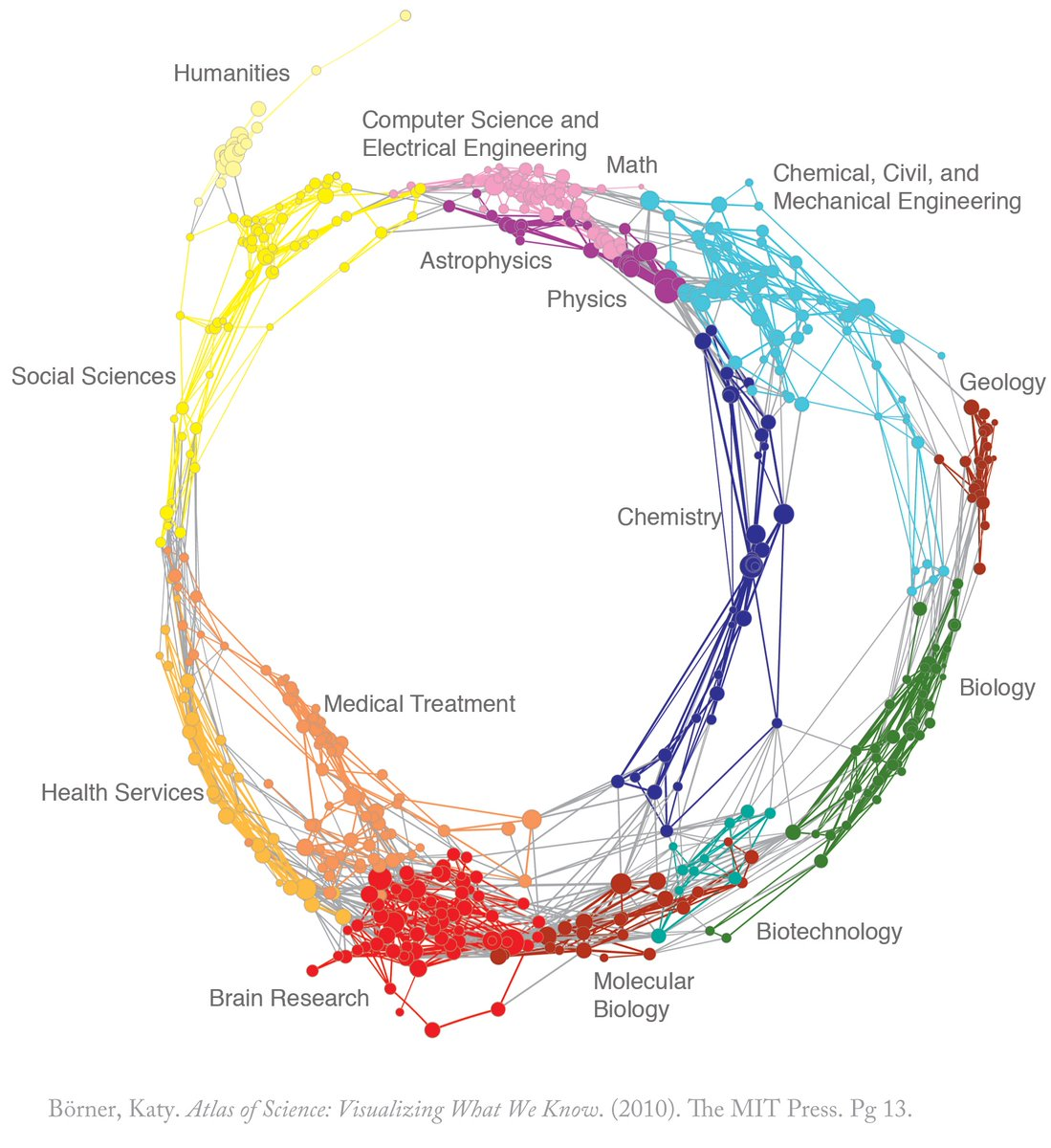
Notice the lack of connections between fields like chemistry and social sciences? Physics and medicine? This gap is not a coincidence.
To create a successful education for yourself, pick two points on the opposite side of the circle, and become the expert in how they relate. If your college doesn't have a name for the intersection of the ideas you're interested in, it's likely a fault of the college and not your own. This type of knowledge is valuable because it's unique. If you can pick up your education from a book, so can someone else, and they can replace you. Focus on finding knowledge that gives you a perspective that others are unable to see.
Some of the most successful inventors in history have made their fortunes by placing themselves in the middle of the circle. Steve Jobs attended a calligraphy class that shaped the future of Apple as a leader in design. He didn't do this because it was part of his major (he had already dropped out of college at this time). He did it because it interested him.
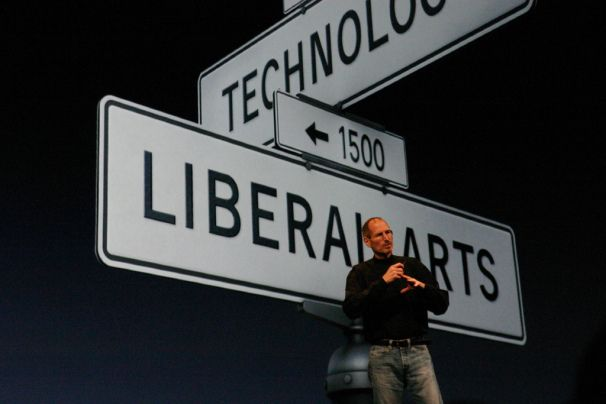
If you're trying to maximize your education, the metric to measure is the rate at which you're gaining new skills. Colleges have a fixed rate of education — four years, one degree. Since colleges make money by selling tuition, they have no reason to encourage you to finish more quickly.
New forms of education are disrupting this model. Coursera is an online university that provides classes from the world's best universities for a fraction of the cost of college. Unlike a college lecture, you can listen to these classes at a pace of your choosing. For topics like artificial intelligence and synthetic biology, these classes provide a great starting point for someone who wants to understand the vocabulary and fundamental concepts, without devoting four years to an advanced degree.
Another exciting option for students is a remote university called Lambda School. Lambda School focuses on computer science topics like web development and data science. These skills are in high demand for employers and can often be performed from anywhere in the United States. Unlike traditional universities, Lambda School was designed to be 100% remote, so you will be getting the full experience, even if you're unable to resume a normal life by the fall. Lambda School also has a much faster pace than a traditional computer science degree. Instead of four years, you'll complete your education in a little over nine months. When you complete your degree, you don't pay for the education until you land a job paying you at least $50,000 per year. This type of contract is called an Income Share Agreement, and it helps protect you from student loan payments.
Of course, education is only valuable if you retain the skills you've learned along the way. It's not uncommon for college graduates to admit that they've forgotten most of what they learned just a few years after leaving university. I believe this is one of the biggest problems with education today. I have yet to receive an email from one of my old teachers quizzing me on a homework problem, although the dreams about showing up late for a test tend to stick around.
Education teaches you how to learn, although there are very few classes that focus explicitly on effective study and memory techniques. The best learners take this into their own hands. Lessons tend to stick with you if you can find ways to remind yourself of things you've learned through continual reinforcement. A common way to do this is by getting a job in your chosen field. Spending every day applying your education is a good way to make the lessons stick. For students like you, who may want to learn about topics without being sure of when you'll apply them, spaced repetition is another option.
Spaced repetition is a way to remember things years after you've learned them. It works like flashcards for a test, except instead of showing new flashcards randomly, spaced repetition only surfaces cards right before you're about to forget them. It's one of the best-kept secrets for people who need to remember a lot of information about random topics. I wish I had created spaced repetition flashcards while I was learning full-time since it's hard to go back and do it later.
My final advice for learning is a bit unconventional: Twitter. For most people, Twitter is a weird social network that didn't get as big as Facebook or as popular as Instagram. Yet millions of people use it every day. It must be offering them some value, or they would have switched to another platform by now.
Twitter is a way to subscribe to the unfiltered thoughts from some of the smartest and most successful people on the planet. Take Elon Musk for example: he uses Twitter to post updates about the launch of rockets into orbit, but his bio claims he is a meme necromancer and the former CEO of Dogecoin. Life doesn't have to be serious all the time.
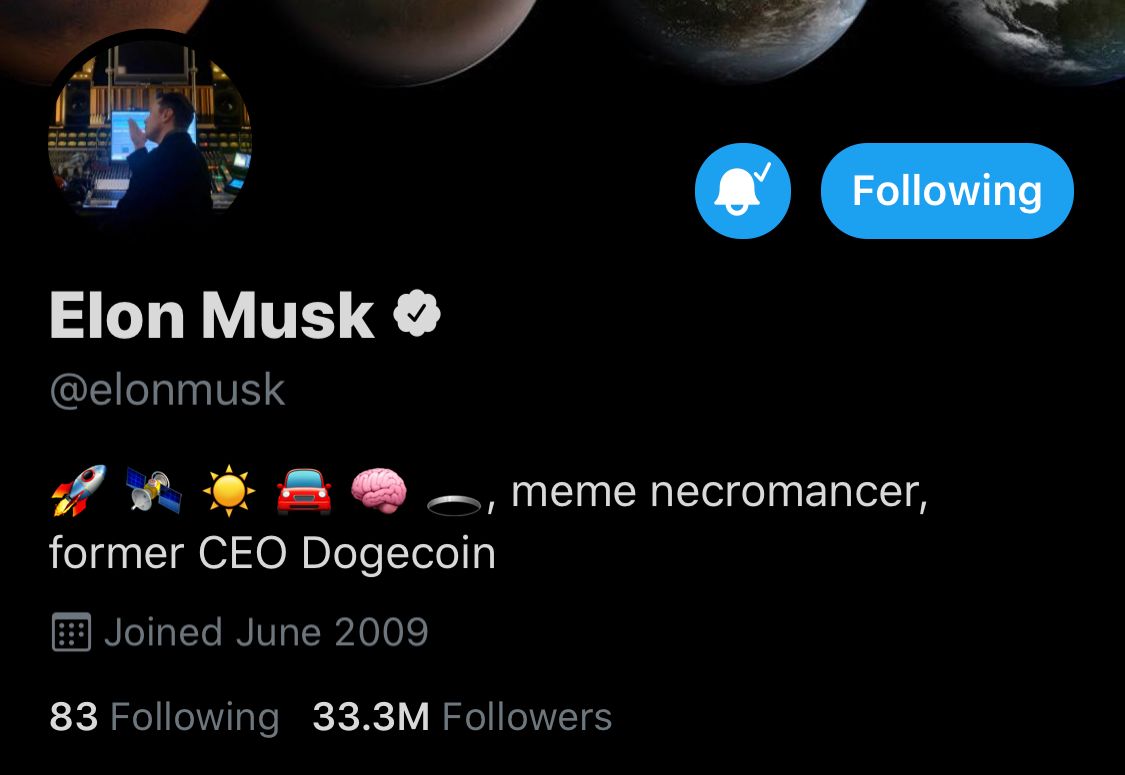
There are countless people worth following, and it's a fine line between entertainment and value. My only advice here is to follow people who provide you with information that you wouldn't be able to find otherwise, and use the mute button liberally if you find yourself engaging with low-quality content.
Credentials
Credentials are external signals about your ability to solve certain problems. The best credentials are widely recognized and exclusive. Credentials work best when they are seen as a predictor of success. If everyone who receives a certain credential goes on to do great things, it's assumed that getting the credential plays a role in causing that success to happen. There are a few big credentials associated with college that you should be familiar with.
The most widely recognized credential for employers is the college degree. Having a degree has become a prerequisite for most of the entry-level jobs, although this varies across industries. It's important to understand that all degrees are not made equal. If you are deciding between two degrees, and one is harder, it's worth it to choose the more difficult option, if only because it will give you more options later on.
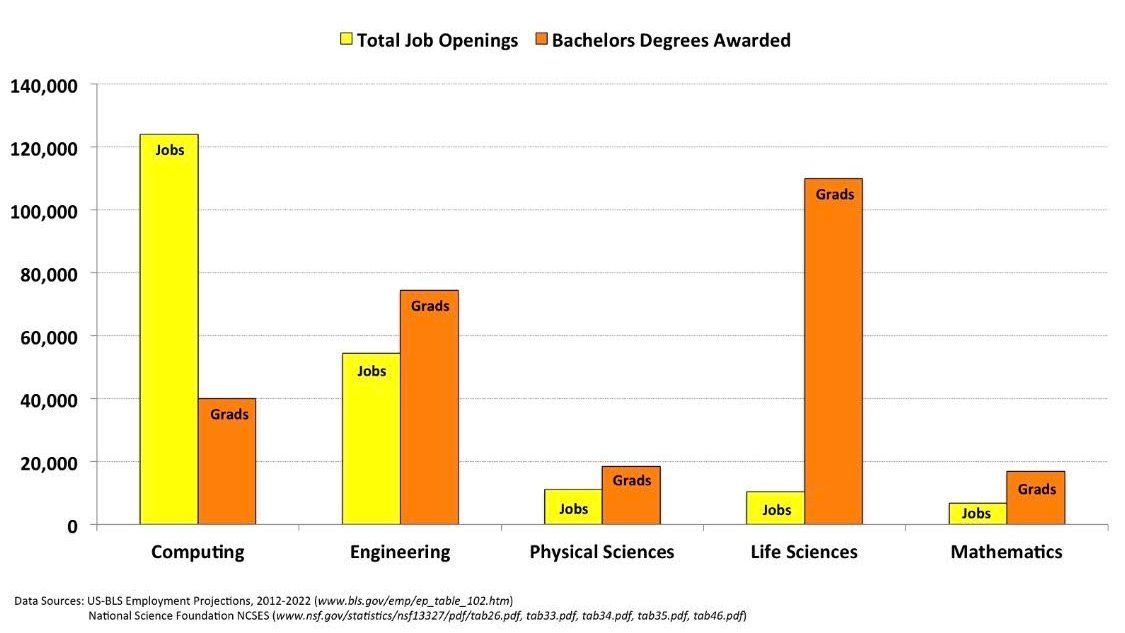
Similarly, the school you choose to attend is a credential. Big companies like to say that they hire students from exclusive universities because it raises their status. I won't spend too much time here on strategies to get into good universities, because there is plenty written on that topic already. What I will say is this: if you choose to attend college, focus on getting into the best university you can within your means. Once you're in, try to understand what options are available to you once graduating. The easiest way to do this is by looking at places that alumni typically go to work. If you don't like any of the options on the list, consider changing your credential by transferring universities.
A common misconception is a belief that GPA is a measure of education. GPA is a credential that is used as a way to sort students for employers and grad school. It has all the signs of a good credential: widely accepted, exclusive, and gives opportunities that snowball into further success. As long as you realize that GPA is a way to rank people and not a measure of your intelligence, you will be fine. It's difficult to rank thousands of students consistently, so we've settled on GPA. It's not perfect, but it's the reality, so focus on keeping your GPA above whatever threshold will allow you to qualify for the opportunities you're interested in.
Credentials tend to be zero-sum games: this means that for you to win, someone else needs to lose. I hesitated to include details about succeeding at these games in this talk because they tend to be unrewarding in the long term. There will always be someone with a better school, a higher GPA, or a more prestigious internship.
With that being said, it would be naive to ignore the reality of the world we live in. Understanding what credentials apply to your field early on will give you the choice of whether or not you want to participate. The fields that place the most emphasis on degrees and your choice of university tend to be medicine, law, and science.
For some fields, like writing, technology, and art, the credential comes from the things that you make. These credentials come about as a byproduct of creating things. This gives you the benefits of recognition without spending time pursuing topics for the sake of a piece of paper. The best way to create an independent credential is to have someone well respected in their field endorse work that you've done. You'd be surprised how often "famous" people will respond to earnest requests to review work that a young person has created. If they say yes, it's likely because you remind them of themselves at that age.
Keeping your work publicly displayed and updated is important to attract new opportunities. If you're a talented writer or artist, you should consider finding someone to help you create a home for your art. Creators today have the benefit of the internet — you don't need an art gallery when you can create a website for just a few dollars a month. Try to maintain a consistent brand across your platforms. It doesn't have to be your real name, but using the same handle for your social media, domains, and creations will help people find other things that you have done.
Networks
Networks are the relationships you build with people who have similar interests. The best networks are highly connected and clustered around interesting ideas. A good heuristic for measuring the strength of a network is to ask how many introductions it will take you to meet the best person in your field. Highly connected networks will have shorter path lengths between interesting people, which helps information and ideas flow more easily.
Based on the number of successful companies whose co-founders met in college, it's clear that campus is a special space. When open for business, I think that colleges are one of the best sources available today for cultivating a network of friends and mentors. For a few years you will spend nearly every waking moment surrounded by people who share your interests. It's also a great way to make connections you couldn't have otherwise. People are more likely to help out others who they share things in common with. Having the same university name on your resume remains one of the best ways to make an introduction.
It's not enough just to live on campus — you also need to spend time making friends. A side effect of declaring a major is that it tends to cluster students into groups. Biology majors spend time with other biology majors since they share classes and teachers. There is some cross-pollination between related fields, but these are often less significant than intra-major relationships. Biology and chemistry majors might come together for a shared class but tend to separate once the learning becomes more specialized. This means you'll spend a lot of time with people in your major, so choose wisely.
One of the benefits of choosing a hard major is that you will naturally find yourself surrounded by smart, ambitious people. You become like the people you spend the most time with. I won't tell you how to choose your friends, but it's worth considering how your environment is shaping your relationships. If everyone has a common goal and is willing to help one another then you're probably in a good place.
The fact that campuses may be closed in the fall is likely the deciding factor for students choosing to defer. It may seem silly trying to explain to your parents and teachers that making friends is such a big motivating factor for you. If this is the case, then don't worry: you're not alone.
The idea of a "gap year" has existed since at least the '60s, but this one has some special circumstances. A larger number of your friends may be considering taking a year off. If you're talking about it, there are likely groups just like yours having the same conversation all over the country. Unbeknownst to you, your network is out there, waiting for you to make an introduction. Instead of an incoming class at one college, it's an entire generation of college-bound seniors, stuck in the same situation. Instead of hanging out on campus, there will need to be somewhere for all of you to hang out and make connections. It probably won't look anything like college. If I had to guess, it will probably look more like Fortnite, or Minecraft. (Do people still play Minecraft?)
If you're technically inclined, this would be a fun project to build. Start small, with just members of your high school. Keep it exclusive, so only seniors can join. You might just find that your new network looks nothing like the ones that we've become accustomed to. If it's based online, it doesn't matter where you're located or what college you're going to.
For those of you who are interested in trying something ambitious, why not apply for Y Combinator? Y Combinator is a startup accelerator that gives you money to build a company. If you build a product that becomes popular, they will give you $125,000 in exchange for a portion of your company. If you don't have a company, they will help you create one and walk you through the process. Normally, I wouldn't advise this since going to college is one of the best ways to meet co-founders. But if that option is off the table, it may be worth giving it a shot.
Regret
My advice to you: think hard about whether you'll regret doing nothing with this downtime you've been given.
Whatever you decide to do, try to make sure it's a good story. It will be easy to stick to whatever you've been doing in the past, whether that's just hanging out or playing video games. Going to college is usually a big change, and this might seem like a rip-off.
If college was supposed to be the thing that finally stopped you from considering yourself as a high schooler, then why not take matters into your own hands? Get started now on something unusual, something crazy, something that will make a hell of a good story when you finally get to campus. If it's ambitious enough, you'll be sure to attract the right kind of attention.
And hey, if it works, maybe you'll realize that your senior year summer was the best thing that ever happened.
Further reading:
- What You'll Wish You'd Known: An essay with advice for high school seniors from Paul Graham
- Before The Startup: A great talk from Stanford’s How To Start A Startup class that includes advice about finding cofounders in college.
- How To Get Rich (Without Getting Lucky): Bite-sized philosophy, in Tweet form
- Advice for ambitious 19-year-olds: The tradeoffs between going to college, starting a company, or joining an existing one
- Advice for ambitious teenagers: Laura Deming writes about her experience working in a research lab as a teenager and recommends self-directed projects.
- How to make a difference with your career: Advice from 80,000 hours, a website dedicated to career advice
- Advice if you’re between 10-20 years old: Patrick Collison is the CEO of Stripe and gives great bullet points on what he did to lay the foundation for his success.
If you enjoyed this essay, please consider sharing it with a friend. Sunday Scaries doesn't have paid subscriptions yet, so the best way to help support this publication is to spread the word.
Sunday Scaries is a newsletter that answers simple questions with surprising answers. It's part soapbox, part informative. It's free, you're reading it right now, and you can subscribe by clicking the link below 👇